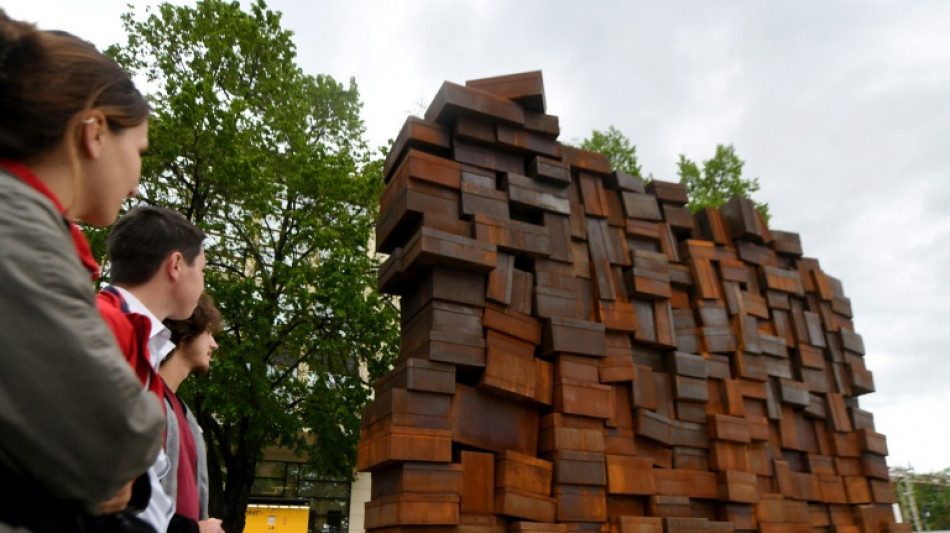

Zagreb gets long-awaited Holocaust victims memorial
A long-awaited memorial for victims of the Holocaust and Croatia's pro-Nazi World War II regime, which had sparked controversy here, was inaugurated in the capital Zagreb on Wednesday.
The 12-meter (39-foot) high sculpture, just next to Zagreb's main railway station, symbolically presents a wall of suitcases taken from the victims before they were packed into cattle cars and deported to concentration camps.
From that site some 800 Zagreb Jews were deported to Auschwitz camp in August 1942.
The initiative to erect the monument to the Holocaust victims was launched a few years ago and it was ready to be inaugurated last year.
But, the local Jewish community objected that they were not consulted during the process and argued that the memorial neglected the key role Croatia's pro-Nazi WWII regime had in the atrocities.
The World Jewish Congress (WJC) echoed the view and accused the Croatian authorities of continuously attempting to "rewrite the history".
"One cannot speak of the Holocaust in Croatia without highlighting the central role of the Ustasha regime" in crimes against Jews, Serbs, Roma and its other opponents, it said in a statement.
The Ustasha, in line with their racial laws, persecuted and killed hundreds of thousands of ethnic Serbs, Jews, Roma and anti-fascist Croatians.
After criticism, the city's authorities eventually dedicated the memorial to the victims of Holocaust and the Ustasha regime.
"I stand here today humbly ... hoping that the unveiling of the monument will contribute to the culture of remembrance, so that we do not forget the mistakes of the past and repeat them as little as possible," said Zagreb mayor Tomislav Tomasevic during Wednesday's ceremony.
He unveiled the memorial along with an Auschwitz survivor.
In recent years the European Union country has seen a growing tolerance for its pro-Nazi past and critics warn against attempts of historical revisionism aimed at downplaying the Ustasha atrocities.
Last week the country's Jews snubbed an official commemoration for the victims of the country's most notorious WWII death camp accusing the conservative government of failing to sanction the use of the Ustasha symbols.
J.Romagnoli--IM




